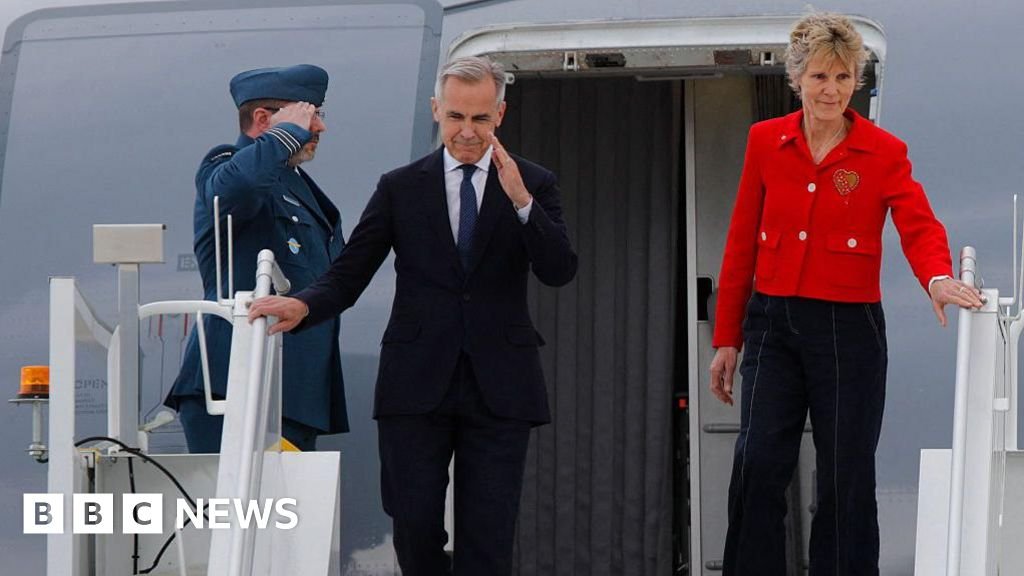Pope Leo XIV meets with a group of 32 young men and women from Ukraine, who presented the Pope with a framed photo of one of their classmates who was killed last year in a bombing.
By Isabella H. de Carvalho and Svitlana Dukhovych
“It was incredible. I would say that even now I am not fully aware of everything that happened,” Tetiana, 17, told Vatican News, describing the emotional moment when, together with 31 other young Ukrainians, she was able to meet Leo XIV during the Wednesday General Audience, 11 June, in St. Peter’s Square.
The young people were able to enjoy days of serenity and lightheartedness, far from air raid sirens, bombs, and violence, and had the opportunity to take a photo with the Pope.
The group belongs to the Greek Catholic Cathedral of St. Nicholas in Kharkiv, Ukraine’s second-largest city and one of the most damaged by the conflict, as it is situated just a few kilometres from the border with Russia.
Thanks to the relations between the Greek Catholic Exarchate of Kharkiv and the local Caritas association with various Italian humanitarian organizations, for the second consecutive year a trip has been organized that brings young Ukrainians to Italy for three weeks, from 8 June to 5 July, during which they are able to visit Rome, Como, and Ponte di Legno in Lombardy.
On Tuesday night, while Kharkiv was once again hit by Russian drones—causing at least three deaths and over 60 wounded, including nine children—these young people, aged between 10 and 17, were able to spend time away from the conflict, and experience the closeness of the new Pope, whose first words after being elected were an appeal for peace.
Pope’s support in praying for Ukraine
“Seeing the Pope in person is already a great thing. But being in the same photo with him is something I really couldn’t imagine. These are emotions that cannot be expressed in words,” says Vitaliy, 15.
For Sister Oleksia Pohrsnychna of the Congregation of St. Joseph, who has been serving at St. Nicholas Cathedral since 2018, seeing the emotion on the faces of the children in front of the crowd in St. Peter’s Square was a moment of great joy—as was the “support” she felt from the Pope when they had the opportunity to greet him after the audience. “He told us, ‘I always pray’,” explains the nun, “a truly moving scene.”
When a volunteer from the Diocese of Como’s Frontiere di Pace (Frontiers of Peace) initiative, who was accompanying the group, told the Pope, “Don’t forget Ukraine,” his response was categorical: “No, never,” says Nicola Gini, also a volunteer with the same organisation.
Nicola says he was struck by the look some of the young people gave to the sky when they heard the sound of an airplane flying over St. Peter’s Square. “You could see what they were thinking in their eyes. They really feel the oppression of this war deeply. To think that from this sky, after five seconds of reflection, you don’t have to worry, I think that’s the best gift you can give these young people.”
The memory of Maria
The group of young people also presented Pope Leo with a framed photograph of their friend Maria. Just over a year ago, at the age of 12, she died in a bombing while shopping with her mother, Irina, a month before the trip that was to take her to Italy.
“It was as if they were present in the group, and I think this bond has been further strengthened today,” says Nicola.
Difficult reality faced by young people
The young people also shared with Vatican News the “many difficulties” they experience on a daily basis. They are unable to study or see their friends; the terror of the sound of missiles and bombs and the damage they cause is constant, and many have been displaced from the homes where they grew up.
“Our routine is completely disrupted, our sleep is disturbed, we have to go down to the shelter all the time and we live in constant stress,” says Tetiana. “When we come to Italy, as we are now, and talk to our peers, I always tell them: ‘We are very happy for you that you are living your lives, that you do not know war, that you do not know the sound of air raid sirens. Appreciate these moments, appreciate a peaceful life. Because when war came, people began to appreciate even the smallest and most insignificant things’.”
Living a normal life
The sense of a normal, peaceful life is precisely what the Church of St. Joseph of Cupertino, which is hosting the group in Rome, is trying to offer these days.
The children are staying with various families in the parish, but they eat their meals in the church and attend the summer camp with 280 other young people of the same age.
“Last night, one of the Ukrainian children said, ‘Where are my Italian parents? Why aren’t they here yet?’ as they were a couple of minutes late picking him up,” explains Fr. Paolo Pizzuti with a smile. “It’s a very beautiful moment, but it’s more beautiful for us than for them. Welcoming them into our homes and our community has truly given us so much.”
“We post photos of the children in a parents’ group, and they say, ‘Thank you for letting our children stay there, in a world where they can live normally. Where they can play and sleep peacefully, without thinking about when a siren will sound or a missile will arrive’,” Sister Oleksia says. “We are so close to the area where the fighting is taking place that this time is also a dream for the children. They will return very happy.”
Rest of the trip
After their stay in Rome, the young people will be hosted by the Diocese of Como, thanks to volunteers from the Frontiere di Pace (“Borders of Peace”) initiative, until 27 June. There, they will enjoy games and meetings with various parishes and communities.
Then, until 5 July, they will be in Ponte di Legno, Lombardy, where they will be welcomed by another humanitarian association, Amici in cordata nel mondo.





